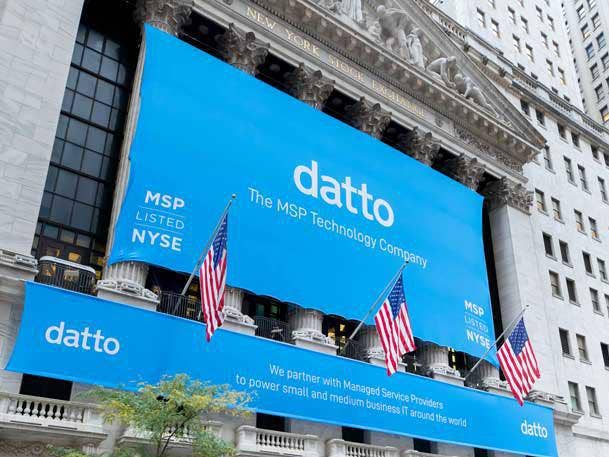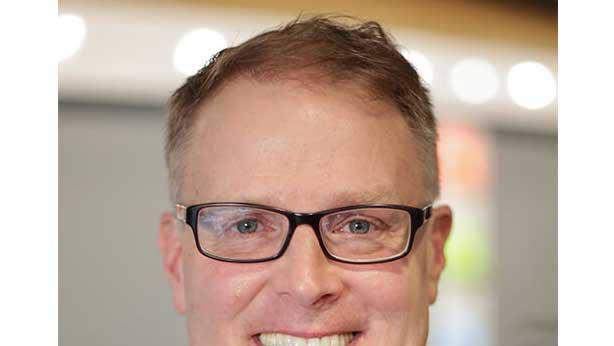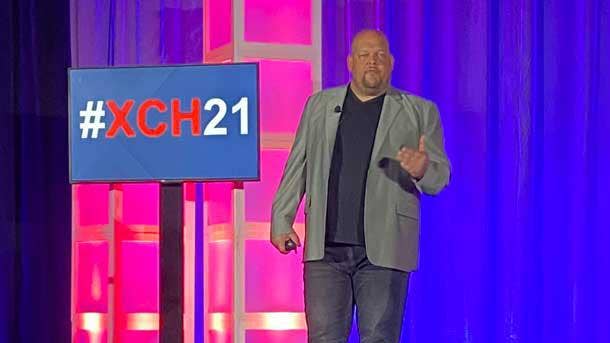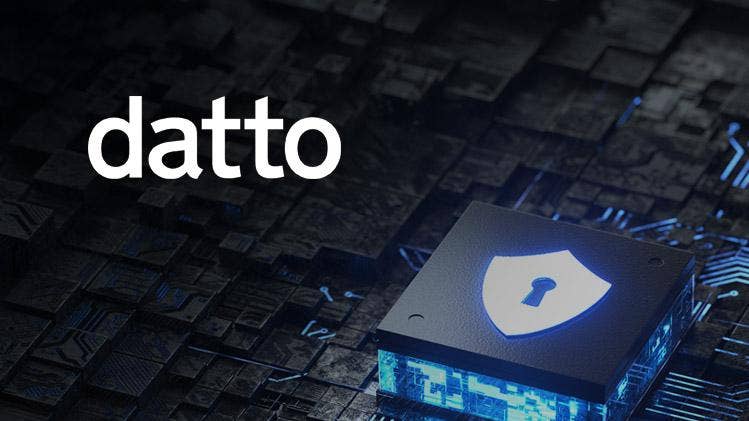Kaseya Closes The Datto Acquisition: 6 Things To Know
Here are six key things to know about Kaseya’s $6.2 billion acquisition of Datto, including the news that Datto CEO Tim Weller will not be a part of the new company.

As of Thursday, two of the top companies serving the MSP community become one as Kaseya has closed on its acquisition of Datto and turned its former rival into “Datto, A Kaseya Company.” The merger of the two companies, which is arguably the most significant change in the MSP business, brings together two key players while putting pressure on rivals such as ConnectWise, N-able and NinjaOne.
Competitors of Kaseya and Datto have raised concerns over the combination of the two companies. John Pagliuca, president and CEO of Burlington, Mass.-based N-able, for instance, told CRN in May that the two companies had different strategies that could impact how smoothly the merger will go.
“Historically, Datto did a very good job being MSP-first and being pretty focused on the channel and their MSP community,” Pagliuca said at the time. “Kaseya had a different strategy. Kaseya is not an MSP-pure shop, and I think that‘s where a lot of the concern is. Will the MSP channel now not be the sole focus of the new Kaseya-Datto entity? I think that’s where a lot of the concerns have been. And, frankly, it‘s not my place really to say if that concern is valid or not. It’s just the reality.”
The reality, according to Kaseya CEO Fred Voccola, is that Kaseya has set plans to make the new combined company a success. This includes retaining Datto’s top executives and other key management people, a gradual melding of the combined account management team even as it adds 1,000 new account managers by year-end, increasing investment in R&D, and taking advantage of key Datto product lines, particularly an often-overlooked networking business that Voccola said compares to the best that Cisco Systems has to offer.
The MSP community is in for a whole new ride going forward. CRN has identified six key things to know about Kaseya’s acquisition of Datto.

Datto CEO Tim Weller To Leave
Tim Weller, who in early 2019 took the reins as Datto CEO and the following year took Datto public with the “MSP” stock symbol, will not be an official at Datto going forward, although he will be available to help transition Datto to Kaseya.
Voccola called Weller a great human being. “He [cares] about people, which is pretty cool, which is not very common, which is unfortunate in the world that we live in,” he said. “But Tim will be moving [on]. He won‘t be coming along the journey. Tim is a CEO, and a very good CEO. And Tim will continue advising me and the company and helping the company. He’s been a true pro during this process. But Tim will be moving on.”
By “moving on,” Voccola said it is important to emphasize that Weller will remain an unofficial adviser to Kaseya as needed.
“Tim bleeds Datto blue,” he said. “He loves Datto, and he wants what‘s best for Datto’s customers and Datto‘s employees, and he’s going to help me make sure we continue to deliver on that.“
Voccola said he does not know what Weller has planned for his future.
“Tim is a super-talented executive,” he said. “He‘s got a great track record. Tim can write his own ticket. Tim can do anything he wants. He can go run a company. He can go sit on boards. He can go be an operating partner at a private equity firm. He can hang out with his family, and he’s very close to his family. He‘s got kids. He can write his own ticket. And whatever he does, I’ve got his back 100 percent.”

Keeping The Datto Executive Team
Kaseya is focused on making as many of Datto’s executives a part of the Kaseya team as possible, Voccola said. That includes two Datto executives that MSPs previously told CRN are key to ensuring the successful integration of the two companies.
The first is Rob Rae (pictured), Datto’s senior vice president of business development and one of the most recognizable faces at MSP conferences across the country. Voccola said Rae will continue in his current role.
“Rob Rae is sticking around,” he said. “Rob‘s awesome. We love Rob. I’ve tried to hire Rob for the last six years. So we got Rob finally. It took us buying Datto to get Rob Rae to be an employee.”
The second is Ryan Weeks, Datto’s chief information security officer, who will continue in that role in Kaseya, Voccola said.
“He‘s not going anywhere,” he said. “So we’re excited to have Ryan staying on board. You know, Datto‘s commitment to security is second to none. And we’re looking forward to continuing Ryan in his position as the CISO of Datto.”
Voccola also said Kaseya is offering retention bonuses to ensure other key Datto executives stay with Kaseya, although he declined to specify amounts. Prior to the close of the acquisition, Datto had already put tremendous financial resources at its discretion to retain people, he said.
Kaseya offers a very aggressive compensation structure with a mix of cash, stock, retention bonuses and other forms of compensation, Voccola said.
“Every tool that‘s available is in place to make sure our second-most important asset we have, our people, are there to take care of the most important asset we have, which is our customers,” he said. “So retaining key employees is a huge, huge aspect of this transaction, particularly people who interact with customers and deliver the world-class customer service that Datto has been known for.”

Significant Growth Slated For The Combined Kaseya-Datto Sales Team
Going forward, Kaseya will not only move to keep every Kaseya and Datto account manager on board, it expects to hire over 1,000 more account managers in the next seven months above replacing any who decide to leave, Voccola said.
Kaseya already has plans for ensuring customers are not lost in the shuffle of bringing the Kaseya and Datto account management teams together, he said, starting with keeping two account managers on every product until mid-August, after which there will be a unified account management organization with one account manager for every customer, followed by a six-month transition period for any accounts that will see a change in their account managers.
“Each account manager will be incented financially on that account,” he said. “So if the Datto account manager is the account manager that is going to continue managing the account, the Kaseya account manager will transition to the Datto account manager and will be financially compensated for up to six months on anything that comes from that account to make sure that, in this case, the Kaseya account manager is incented to make that transition as smooth as possible.”
Kaseya is investing heavily to ensure a good customer experience during the account manager transition period, Voccola said. “We‘re spending literally tens of millions of dollars to make sure that goes very smoothly,” he said.

Lower Prices, Flexible Customer Contracts Slated
Voccola said Kaseya is planning to reduce pricing for all Datto products an average of 10 percent.
“Some [reductions] will be more,” he said. “Some probably won‘t move because some of their products are so low-priced. But we are making every product more affordable as we promised. And our job is to help MSPs make more money. And by lowering the price of our kit, we can do that.”
Voccola also said that, contrary to popular misconceptions, Kaseya and Datto have very similar pricing strategies. Both offer one-year and three-year options in their customer contracts, he said.
“Just like Datto, Kaseya provides much more affordable pricing if a customer commits to three years and locks their same low pricing. ... There are no intentions of changing that,” he said. “One hundred percent. The strategy will continue. If customers make a long-term commitment, they will receive huge pricing advantages to do that. And in this time of high inflation, where the average software vendor raises prices over 20 percent per year, customers locking in a low price for three years is probably the best thing they can do. We will continue just as we‘ve done before with one-year and three-year pricing across the entire company.”

Building On The Datto Technology Base
Datto brings to Kaseya multiple “amazing” product lines that will enhance and complement what Kaseya’s MSP customers have come to expect from that company, Voccola said.
The first is Datto’s networking portfolio, he said.
“It‘s a fraction of the cost of things from Cisco and other folks,” he said. “It wasn’t a big focal point of Datto. Their switches, their routers, their access points. It wasn‘t a focal point. We’re going to make it a focal point. That‘s great technology they have. They made an acquisition of Open Mesh. Austin McChord, their founder, was a big visionary and proponent here. I share that vision with Austin. I think that‘s a huge benefit. Last couple of years, Datto wasn’t focused on it. ... We‘re going to focus on it because MSPs can save a ton of unnecessary spend by leveraging the enterprise-class networking gear from Datto.”
Voccola acknowledged that certain things can fall out of focus at any company. “Well, now that Kaseya has bought Datto, we can focus on more things,” he said. “And one of the focal points of this transaction is the networking portfolio of IT Complete, which came from the Datto acquisition, will be the No. 1 networking infrastructure platform for MSPs by the end of 2024.”
Datto also brings several other key technologies, including a data protection portfolio, the Datto Autotask franchise and its RMM franchise that complement similar offerings from Kaseya, Voccola said.
“There‘s very little overlap,” he said. “We’re super excited for it. They serve different segments of the market. I‘m super jazzed about it.”

Renewed Focus On R&D Investment
Kaseya intends to increase its investment in R&D engineers on every product because the increase in value of a company depends on such investments, Voccola said.
There are two primary ways a company can create value in an acquisition, he said.
“One is you can cut the [heck] out of costs and you make money because you‘re saving money,” he said. “You want to increase your profit, you cut a lot of costs. The second way is you grow revenue, and growing revenue leads to more profit. How do you grow revenue? You have to invest. The thesis for this deal, the $6.2 billion and change that Insight and myself and the investors signed up for, is 100 percent about growth, which means it’s 100 percent about investment. It‘s not a cost-reduction investment thesis.”
Voccola said he is angry when competitors spread what he called FUD--fear, doubt and uncertainty--about the acquisition.
“[They’re] saying, ‘Oh, everything about Datto is going to go away,’” he said. “That’s stupid. And when they say that, they‘re just trying to take advantage of the fact that we couldn’t come out and say the truth because Datto is a public company. Now we can. Those are facts. Hold me accountable.”